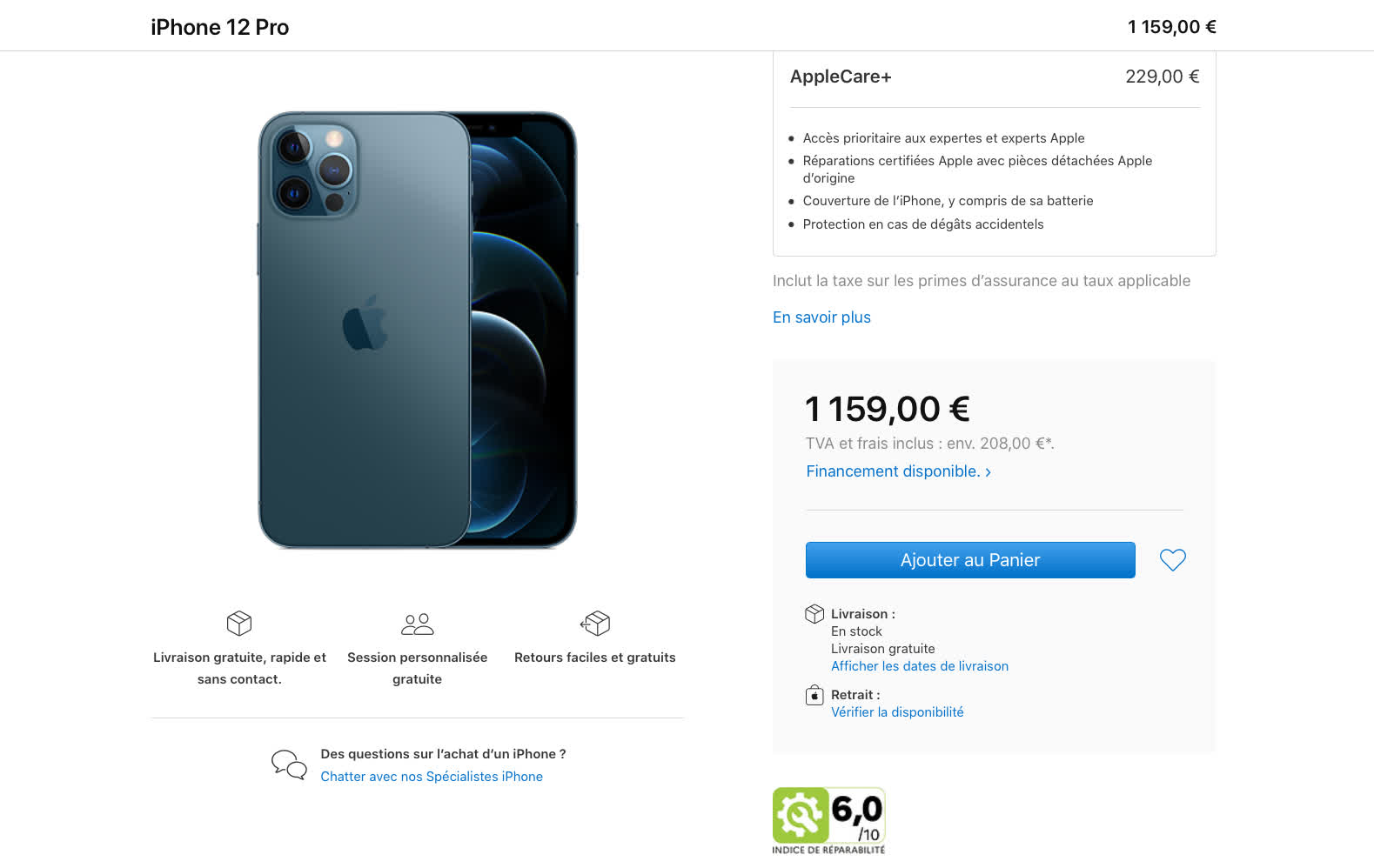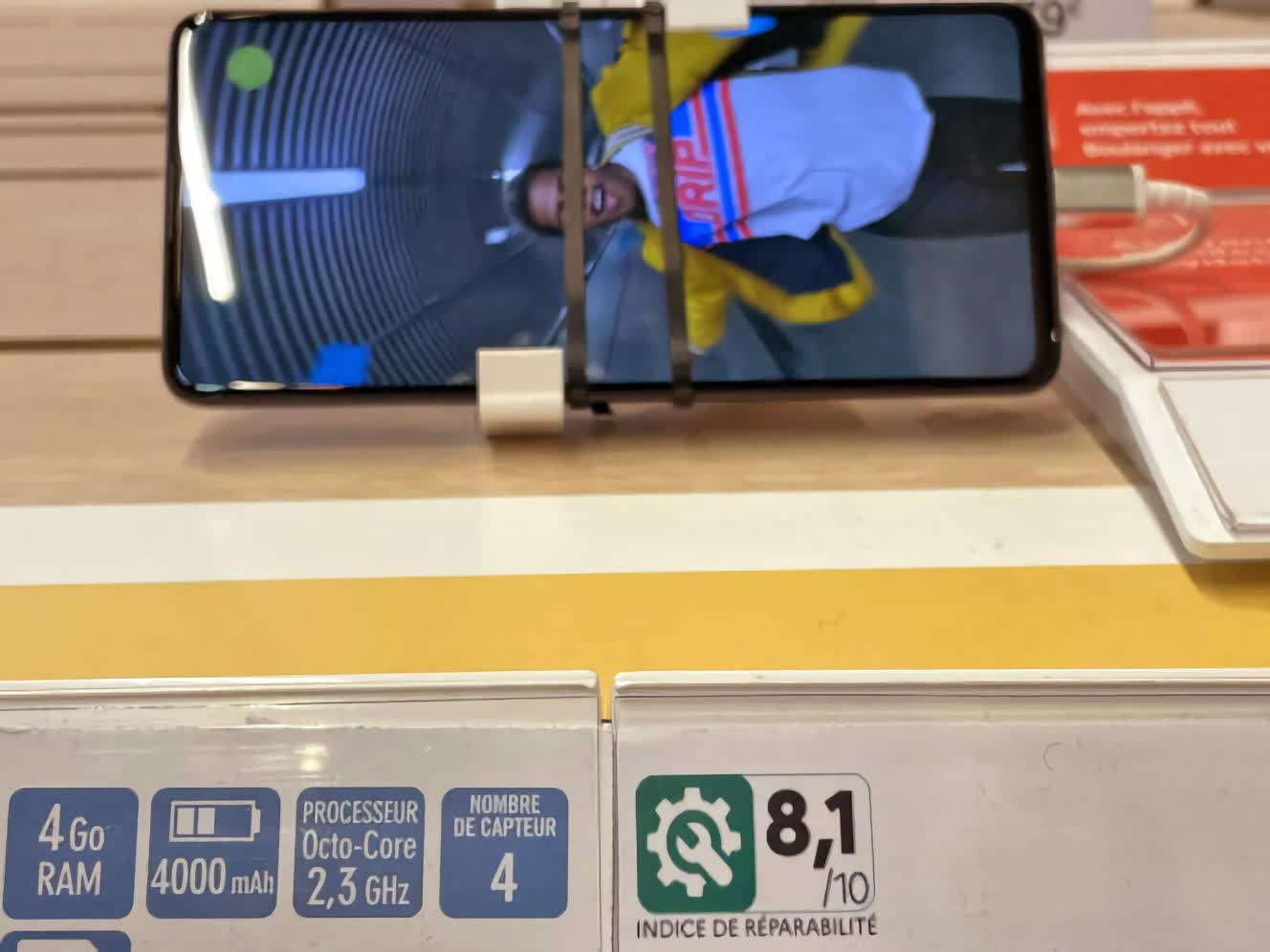[ad_1]
In a nutshell: The right-to-repair movement has taken some positive steps. Apple and Samsung recently began labeling their devices with repairability scores in France. Granted, this became required as of the first of this year. However, the two companies, which have stood against R2R laws in the past, have not complained about the new rules.
French law now requires electronics manufacturers to post repairability scores for their products. The legislation went into effect on January 1, but companies have until next year before regulators begin imposing fines to enforce the rule. Apple and Samsung have already started displaying the labels on their websites (below) and in stores (bottom).
French media outlet Radio France Internationale notes that manufacturers are allowed to self-report their scores but are bound by strict guidelines. The ratings range from 1-10, with higher scores indicating the device is more readily repairable.

Things like ease of disassembly and availability of repair manuals or replacement parts factor into the scores. MacGeneration lists the five main judging criteria are as follows (translation via Google):
- the availability of documentation (for repair, use and maintenance as well as the period during which this information is made available);
- disassembly (how easily it is done, how easy it is to access parts, what tools are required, how the parts are fixed in the device);
- spare parts (period of availability and delivery times);
- the price of spare parts (compared to new);
- the available software updates, the offer of remote technical assistance free of charge and the possibility of resetting your device in a software way [sic].
For example, the iPhone 11 ranks a 4.5, while the iPhone 12 scored a solid 6.0. According to the detailed listings that Apple recently added to the French version of its support pages, the newer phones are more repairable because they are easier to take apart and because parts are less expensive.

Although neither Apple nor Samsung have commented on the new law, it is safe to assume that they are probably not happy about having to list repairability scores, especially on products that fall short in that area. Apple has been a vocal opponent of right-to-repair laws in the past, but has begun relaxing its stance more recently. Fortunately, the rules allow device makers easy ways to increase a product’s ranking.
For example, Le Monde reports that Samsung published a Galaxy S21 Plus repair guide online to boost its score. Since most companies already use them in-house, online manuals are a practically effortless way for OEMs to improve their products’ rankings. Making spare parts more readily available is another thing they can do without much hassle.
These seemingly little things are the whole point behind the legislation. Instead of requiring manufacturers to outright allow third-party repairs, which Apple and others have long resisted, lawmakers have forced them to compete in terms of repairability, and they seem to be taking to it without complaint.
Image credit: Vladimka Production
[ad_2]
Source link